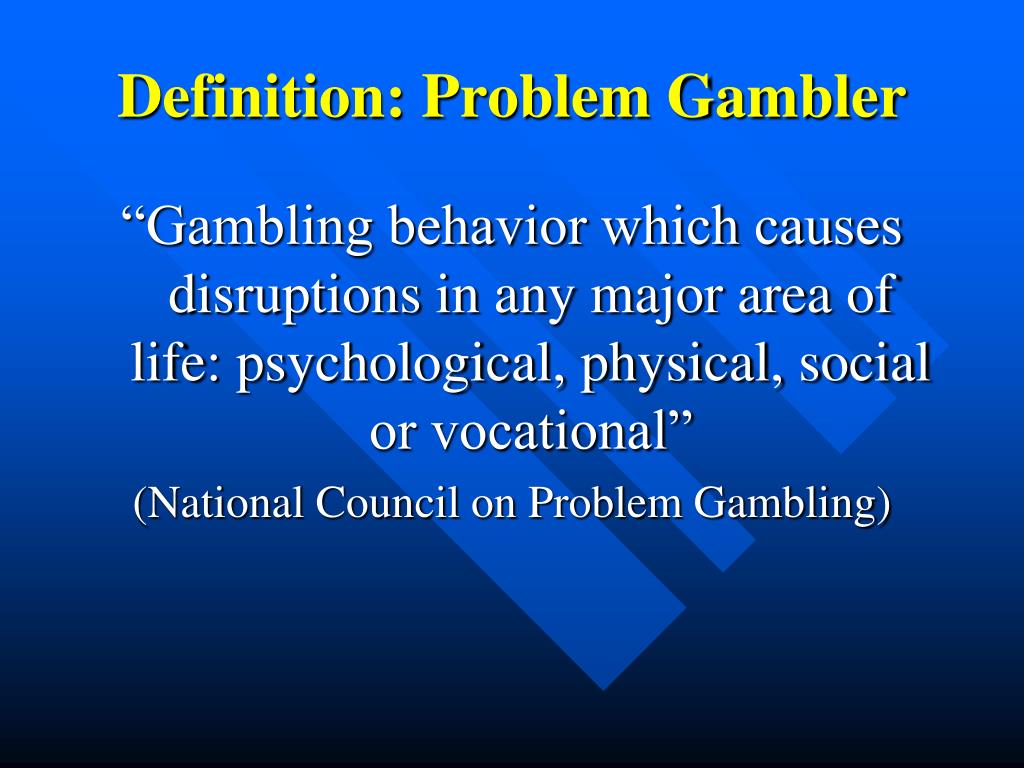Pathological Gambling Define


As states have moved from merely tolerating gambling to running their own games, as communities have increasingly turned to gambling for an economic boost, important questions arise. Has the new age of gambling increased the proportion of pathological or problem gamblers in the U.S. population? Where is the threshold between 'social betting' and pathology? Is there a real threat to our families, communities, and the larger society? Pathological Gambling explores America's experience of gambling, examining:
- The diverse and frequently controversial issues surrounding the definition of pathological gambling.
- Its co-occurrence with disorders such as alcoholism, drug abuse, and depression.
- Its social characteristics and economic consequences, both good and bad, for communities.
- The role of video gaming, Internet gambling, and other technologies in the development of gambling problems.
- Treatment approaches and their effectiveness, from Gambler's Anonymous to cognitive therapy to pharmacology.

- Pathological Gambling explores America's experience of gambling, examining: The diverse and frequently controversial issues surrounding the definition of pathological gambling. Its co-occurrence with disorders such as alcoholism, drug abuse, and depression. Its social characteristics and economic consequences, both good and bad, for communities.
- Pathological Gambler Law and Legal Definition Pathological Gambler is a gambler who is under a severe urge to gamble, in spite of harmful negative consequences or a desire to stop gambling. A person who is diagnosed as a pathological gambler is considered to be having an impulse control disorder.
- Pathological Gambling Disorder Pathological gambling disorder is seen as gambling which is uncontrollable and can alter and adversely affect the individual’s recreational and social activities. This disorder has an extremely disruptive and adverse affect on the life of the individual that suffers from it.
- Pathological gambling is an uncontrollable compulsive urge to continue gambling despite the financial and social toll it may take on the person's life. The individual may increase his/her gambling habits to the point of financial distress, often sacrificing commitments and responsibilities to get more money and gamble it.
This book provides the most up-to-date information available on the prevalence of pathological and problem gambling in the United States, including a look at populations that may have a particular vulnerability to gambling: women, adolescents, and minority populations. Its describes the effects of problem gambling on families, friendships, employment, finances, and propensity to crime.
How do pathological gamblers perceive and misperceive randomness and chance? What are the causal pathways to pathological gambling? What do genetics, brain imaging, and other studies tell us about the biology of gambling? Is there a bit of sensation-seeking in all of us? Who needs treatment? What do we know about the effectiveness of different policies for dealing with pathological gambling? The book reviews the available facts and frames the intriguing questions yet to be answered.
Pathological Gambling Meaning
Pathological Gambling will be the odds-on favorite for anyone interested in gambling in America: policymakers, public officials, economics and social researchers, treatment professionals, and concerned gamblers and their families.
Pathological Gambling Define Meaning

Pathological Gambling Define Legal
Pathological gambling was introduced into the third edition of the Diagnostic and Statistical Manual of Mental Disorders (DSM-III) as a “disorder of impulse control, not elsewhere classified” and comprised seven criteria predominantly related to the financial consequences of gambling (of which three needed to be met for a diagnosis), an.